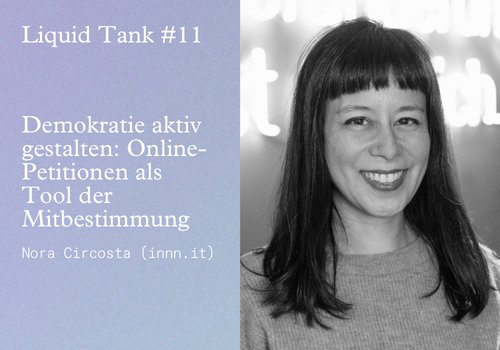Whenever digital participation platforms are discussed, doubts about digital communication arise. Most of these concerns come from the fear that the hostility and insults that dominate the debate on social networks will also be reflected in the discussions on digital participation platforms. In other words, that the dialog between citizens and politicians will turn into a chaos of insults and unobjective contributions. The fear is justified, because many people experience hatred and hostility on the Internet and are thus deterred from participating in debates on social networks. However, science and practice show: The discussions on digital participation platforms are of much higher quality than those on Facebook and other social networks.
Hate Speech and Cyberbullying: Digital Participation Platforms versus Facebook

Hate Speech is a Danger to Democratic Opinion Formation on the Internet
Phenomena such as hate speech or cyber bullying have received a lot of attention in recent years. In fact, studies show that poor discussion quality is a serious problem for online discussions and ultimately threatens democratic opinion-forming, as potential participants are increasingly put off by it. Half of the Hessian Internet users surveyed stated in a study that they shared fewer political opinions on the Internet and participated less in online discussions because of hate speech (cf. Institute for Democracy and Civil Society 2018). A survey of 650 German Internet users came to the same conclusion (cf. Springer et al. 2015). A study of US Internet users in 2016 found that a third of them do not read online posts or participate in online discussions for fear of hostility and hatred (cf. Stroud et al. 2016). It is also important to note that social groups are affected to varying degrees by the phenomenon. To this end, the British newspaper “The Guardian” conducted a study using data from its own online comment columns. The result was that the very people who experience hostility and hate speech in the non-digital world are also exposed to these problems online. Comment columns under articles by female authors, persons of color, and authors from religious or sexual minorities experience significantly more online harassment than male authors, for example (see The Guardian 2016). We live in a world in which, however, political information, communication, and decision-making increasingly take place online, especially in social networks such as Facebook and Twitter. Therefore, the studies' findings that people are withdrawing from these discussions is also a serious threat to democratic opinion-forming. However, digital participation platforms, such as Adhocracy by Liquid Democracy e.V., were conceived and built precisely for this purpose: to enable political discussions between citizens, politicians and administrators online. The goal of these platforms is to enable a discussion that is as factual, transparent and inclusive as possible. The question is whether the discussion on these platforms really works better than on Facebook, Twitter and the numerous other networks.
Facebook versus participation platforms
In a comparative study, researchers led by Katharina Esau at Heinrich Heine University in Düsseldorf examined how the quality of discussion differs on three different digital platforms (see Esau et al. 2021). For this purpose, the content of online discussions from 2015, each with around 700 comments on the same topic – housing for refugees in Germany – was evaluated. One discussion took place on a digital participation platform of Liquid Democracy e.V. based on the software Adhocracy, one the further discussions in comment columns of major German news websites (including Welt Online and Zeit Online) and the third series of discussions in a Facebook group. The study clearly shows that the discussions on the participation platform were of higher quality than those on Facebook in all respects (see Table 1).
Only in the constructiveness of the contributions was the difference too small to be really clear. The biggest difference between the Adhocracy platform and Facebook can be seen in the discussion in the areas of argumentation and expressions of negative emotion. Approximately 32% more comments on the Adhocracy platform included arguments, while on Facebook approximately 35% more posts included negative emotional expressions compared to Adhocracy.
| Areas of discussion quality | Share of posts on Facebook | Share of posts on Adhocracy Plattform |
|---|---|---|
| 1 / Topic Relevance | 94,3 % | 99,2 % |
| 2 / Argumentation | 35,6 % | 67,8 % |
| 3 / Reciprocity | 28,6 % | 37,3 % |
| 4 / Respect | 82,7 % | 98,5 % |
| 5 / Constructiveness | 3,3 % | 5,1 % |
| 6 / Storytelling | 28,4 % | 31,3 % |
| 7 / Positive Emotions | 9,6 % | 18,2 % |
| 8 / Negative Emotions | 48,4 % | 12,3 % |
Table 1 ( shortened from Esau et al. 2021, p. 104)
What makes the difference?
There are probably many reasons why the discussions on Facebook and digital participation platforms are so different. But even in their fundamental goal, with which the platforms are developed, they differ significantly. Facebook and the other social networks are built with the goal of keeping users on the platforms for as long as possible so that they can disclose data about themselves and consume advertising. The functions and algorithms of the social networks therefore aim to constantly bombard users with content and discussions and to suggest to them that they must constantly create their own content. Digital participation platforms, on the other hand, aim to conduct a solution-oriented dialog that deals with specific issues. On digital participation platforms, there are usually few or no functions that promote the self-portrayal of individual participants or those that nudge users to constantly produce posts. Overall, the very purpose of digital platforms provides little incentive for participants to excel at hate speech or other toxic communications. Despite the encouraging results, there is still much work to be done. More needs to be done in researching the causes of hate speech and hostility in online discussions and which social groups suffer from it, so that the problem can be dealt with even more effectively. Another important point, however, is that political parties, initiatives and public administrations should use digital participation platforms instead of Facebook and the like to engage in dialog with citizens. There is still a lot of work to be done before this realization is accepted and the conditions are created everywhere.
--
Last update of the article: 28.05.2021
Sources
Esau, K., Fleuß, D. and Nienhaus, S.-M. (2021), Different Arenas, Different Deliberative Quality? Using a Systemic Framework to Evaluate Online Deliberation on Immigration Policy in Germany. Policy & Internet, 13: 86-112. Link
Institut für Demokratie und Zivilgesellschaft (2018): #Hass im Netz: Der schleichende Angriff auf unsere Demokratie. Link
Springer, N., Engelmann, I., & Pfaffinger, C. (2015). User comments: motives and inhibitors to write and read. Information, Communication & Society, 18(7), 798–815. Link
Stroud, N. J., van Duyn, E., & Peacock, C. (2016). News Commenters and News Comment Readers. Link.
-
article

6 Principles of Good Online Participation
Digital Participation In Action -
article

Einfache Sprache oder Leichte Sprache
Digital Civic Society, Digital Participation In Action -
video

Liquid Tank #11: Demokratie aktiv gestalten – Online-Petitionen als Tool der Mitbestimmung
Digital Participation In Action